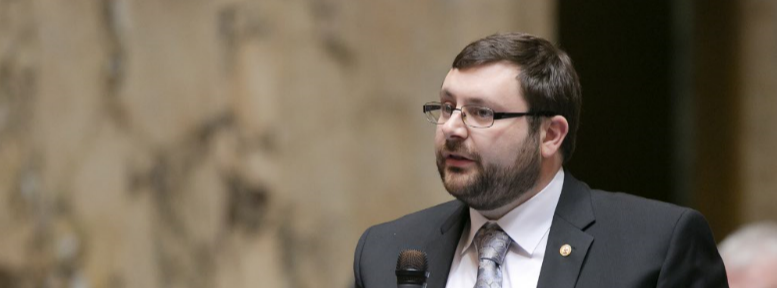Let’s give working families—not Wall Street—a tax break
By JD Rossetti
Published in The Daily News on December 6, 2015
Are you working harder than ever just to keep up with bills? When was the last time you got a raise?
The truth is, working people and the middle class in the 19th District and across our nation are getting a raw deal.
America’s economy is recovering—but regular Americans aren’t.
For decades, we’ve been told the answer to every economic problem was to cut taxes for the rich and hope it trickled down to us, the working class.
Except voodoo economics doesn’t actually work that way. The only thing it does is take more cash from your pockets and hand it to people who have so much they can’t spend it all.
So they’re changing their reasoning for voodoo economics. It’s about morality now. Talking heads on TV say the rich are only wealthy because they’re virtuous, and we should reward this virtue with tax cuts. Meanwhile, these same people say working people are only poor because they’re lazy, so the way to help them is to punish them, thereby encouraging people to work harder.
Twisted, isn’t it?
You don’t need to work harder. Americans already work more hours than any other nation on this planet. Most folks haven’t had a raise in years, despite record-breaking profits on Wall Street.
You’re not lazy—you’re getting a bad deal. And that has to change.
It’s the same story with taxes. Year after year, politicians say, “Vote for me and I’ll cut taxes.”
Except the only people who get tax breaks are the ones who own vacation houses at ski resorts in Colorado, because they employ armies of lobbyists and can write seven-figure checks to super PACs.
This is why Washington, D.C., obsesses about the need to cut programs for kids and families, like Social Security, while quietly handing out tax break after tax break for Wall Street.
And it’s why Washington state has one of the most unfair tax systems in the nation.
I say it’s time to stop.
That it’s time to be honest with citizens about how the game works for the wealthy and will never work for them—until we change the game.
We can change the game by passing tax reform. That means fixing our broken system so working families, small businesses and folks like us get a break while the wealthiest pay a fair share for our schools and highways.
The wonky details aren’t that hard to understand: tax fairness means doing these things in a revenue-neutral way. The total amount going to schools, seniors and transportation doesn’t change. What does change is how much you take from people who drive a Ford compared to people who collect Ferrari’s.
This simple idea of tax fairness can be applied to every aspect of our state’s backward way of collecting revenue.
If we have the guts to tackle tax fairness, we could do big things for the people of Washington state:
· Give every homeowner a break on property taxes with a homestead exemption;
· Completely exempt small businesses grossing less than $300,000 from the state B & O tax;
· Reduce other taxes on average people while closing obsolete tax loopholes for wealthy special interests.
Reducing the tax burden on the middle class and working people is actually the opposite of voodoo economics. It’s a pragmatic approach to common-sense economics, which would create jobs, because 70 percent of our economy comes from consumer spending.
When you give the top 0.1 percent more, they don’t put it back into the economy. Because if you already have three houses, seven cars and walk-in closets full of designer clothes, what do you need to buy?
Give regular people in Aberdeen, Raymond and Longview a tax break, though, and they’ll buy shoes for the kids, maybe replace that Chevy with a bad transmission—or buy their first house. And they’ll spend their money in local stores.
Common sense economics isn’t just the right thing to do, in terms of restoring fairness to a broken tax system.
It’s the smart thing to do, if we want to end decades of harmful lies about economics and actually create more jobs in our small towns and cities.
Rep. JD Rossetti, D-Longview, lives in Longview with his wife and three sons. He is a small business owner who serves on the Longview School Board.
